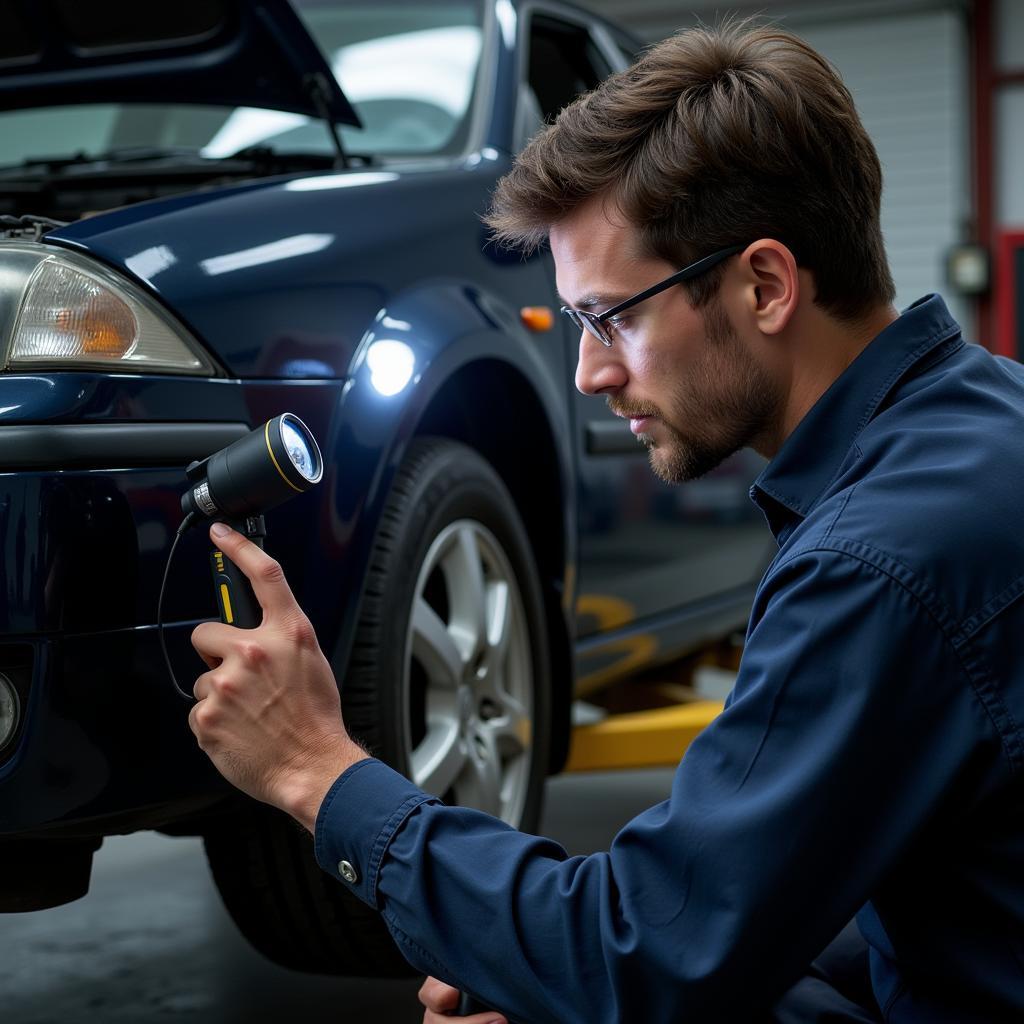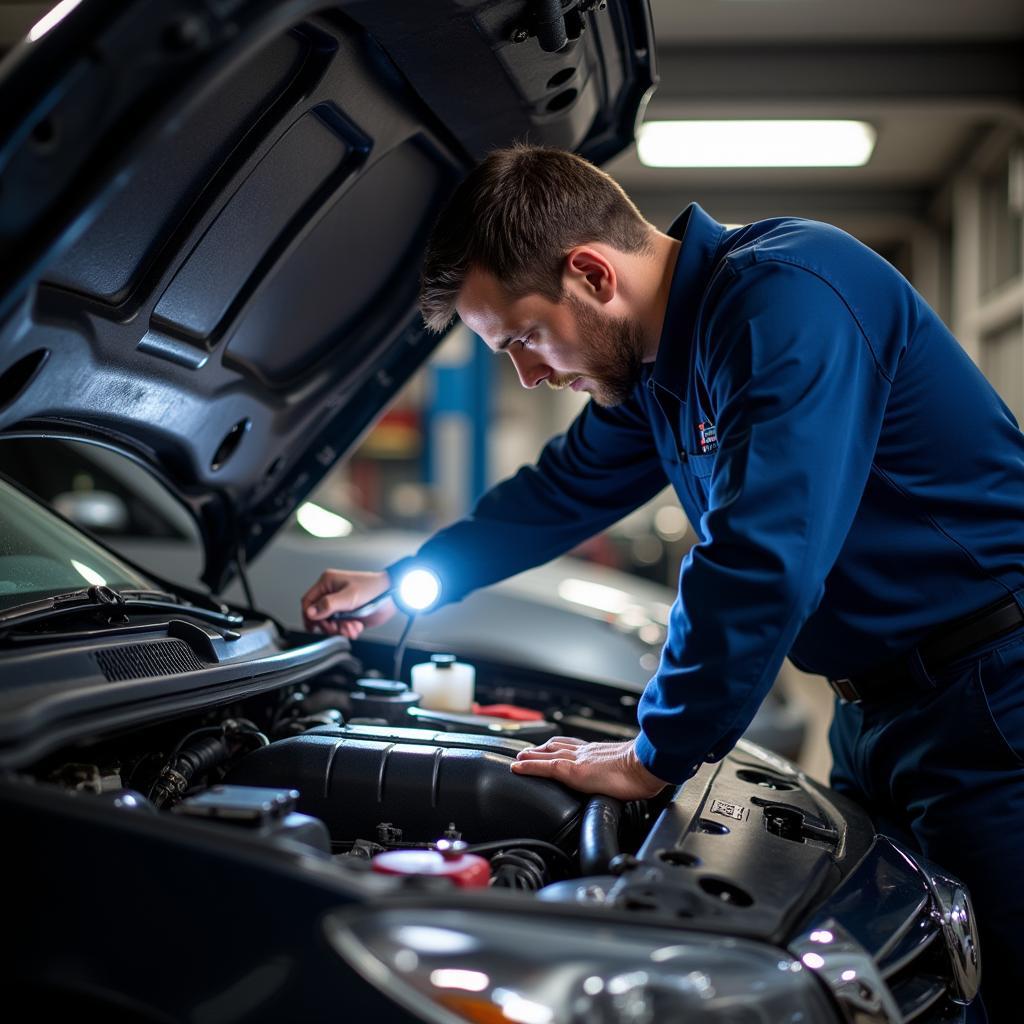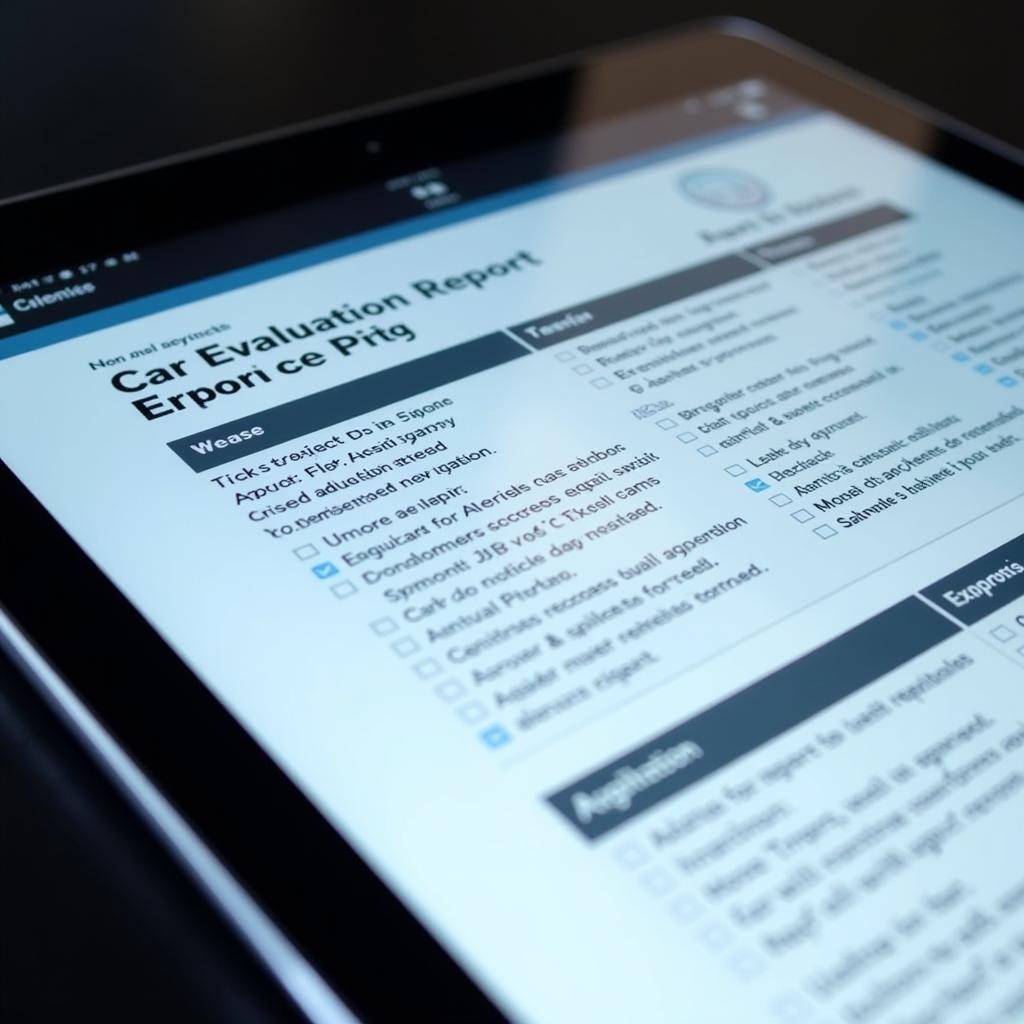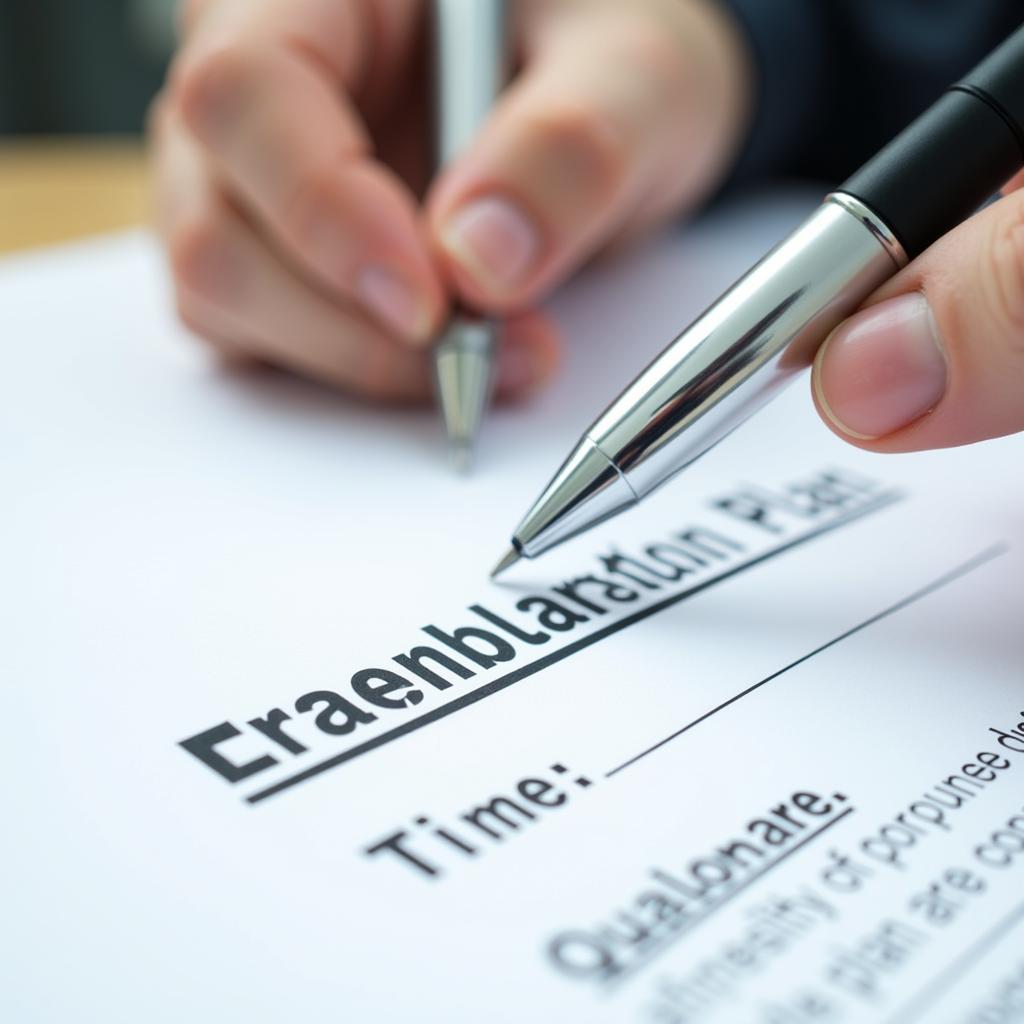Car Evaluation After Collision Repair: What You Need to Know
Ensuring your car is safe and roadworthy after collision repair is critical. While bodywork might look fine, underlying damage can impact your vehicle’s performance, safety, and value. This comprehensive guide delves into the importance of car evaluation after collision service, helping you navigate the process confidently.
Why is Post-Repair Car Evaluation Important?
A thorough car evaluation after collision repair goes beyond just checking for visible damage. It identifies hidden problems and ensures the repair work meets industry standards, protecting you from potential future issues.
 Car undergoing post-collision evaluation
Car undergoing post-collision evaluation
Here’s why it’s crucial:
- Safety Assurance: Even minor collisions can affect crucial safety systems like airbags, seatbelts, and electronic stability control. A post-repair evaluation verifies these systems are functioning correctly, safeguarding you and your passengers.
- Performance Verification: Frame damage or misaligned components can impact your car’s handling, tire wear, and fuel efficiency. Evaluation identifies these issues, ensuring optimal vehicle performance.
- Hidden Damage Detection: Not all collision damage is visible. A professional evaluation can uncover hidden structural issues, electrical problems, or mechanical faults that may not be apparent initially.
- Value Protection: A car with a history of collisions and inadequate repairs depreciates faster. A documented post-repair evaluation reassures potential buyers about the car’s condition and preserves its resale value.
Key Aspects of a Comprehensive Post-Collision Car Evaluation
A comprehensive evaluation after collision service should cover these essential areas:
1. Visual Inspection:
- Bodywork and Paint: Examining for inconsistencies in paint color, texture, and alignment of body panels.
- Glass and Mirrors: Checking for cracks, chips, and proper functionality.
- Lights and Signals: Ensuring all lights are working correctly and aligned according to manufacturer specifications.
2. Mechanical Inspection:
- Engine Performance: Evaluating engine noise, fluid levels, and overall performance for any signs of damage.
- Steering and Suspension: Inspecting for alignment issues, unusual noises, vibrations, and wear and tear on components.
- Brakes: Checking for proper responsiveness, unusual noises, and measuring brake pad thickness.
 Mechanic examining car engine post-collision
Mechanic examining car engine post-collision
3. Structural Integrity Check:
- Frame and Unibody: Examining the vehicle’s frame for bends, cracks, or misalignment, which can significantly impact safety and handling.
- Suspension Mounting Points: Inspecting for damage or displacement, ensuring the suspension system functions correctly.
- Airbag System: Verifying the airbag system, including sensors, modules, and wiring, is functioning correctly and hasn’t been compromised.
4. Electronic Systems Diagnostics:
- On-Board Computer Scan: Connecting a diagnostic tool to read error codes and identify potential electronic issues.
- Sensor Calibration: Ensuring sensors for safety systems like ABS, ESP, and airbags are calibrated correctly for optimal performance.
- Infotainment and Comfort Systems: Checking for proper functionality of the radio, navigation, Bluetooth, and other convenience features.
5. Road Test:
- Handling and Steering: Evaluating the car’s responsiveness, stability, and any pulling or drifting while driving.
- Braking Performance: Testing brake effectiveness, responsiveness, and any unusual noises or vibrations during braking.
- Noise and Vibration Assessment: Listening for any unusual sounds or vibrations from the engine, suspension, or other components while driving.
Choosing the Right Professional for Car Evaluation
Selecting a qualified and trustworthy professional is paramount for accurate post-collision car evaluation. Here’s what to consider:
- Certifications and Experience: Look for ASE-certified technicians or mechanics specializing in collision repair evaluation.
- Reputation and Reviews: Check online reviews and ask for recommendations from trusted sources to gauge their reputation.
- Transparency and Communication: Choose a professional who clearly explains their findings, provides a detailed report, and answers your questions patiently.
- Independent Evaluation: Opt for an independent evaluator not affiliated with the repair shop to avoid potential conflicts of interest.
 Post-collision car evaluation report on a digital tablet
Post-collision car evaluation report on a digital tablet
Conclusion
A comprehensive car evaluation after collision repair is crucial for your safety, peace of mind, and protecting your investment. By understanding the key aspects of the evaluation process and choosing the right professional, you can ensure your car is restored to its pre-accident condition and roadworthy. Don’t skip this crucial step; it’s an investment in your safety and the longevity of your vehicle.
FAQs about Car Evaluation After Collision Repair
1. Who should conduct the post-repair car evaluation?
It’s best to choose an independent evaluator not affiliated with the repair shop to avoid any potential conflicts of interest. Look for ASE-certified technicians or mechanics specializing in collision repair evaluation.
2. How long does a post-repair car evaluation take?
The duration depends on the extent of the damage and the complexity of the repairs. A thorough evaluation can take anywhere from one to several hours.
3. Is a post-repair evaluation necessary even for minor collisions?
Yes, even seemingly minor collisions can result in hidden damage. A professional evaluation can uncover these issues and ensure your safety.
4. How much does a post-repair car evaluation cost?
The cost varies depending on the evaluator’s rates and the extent of the evaluation. However, it’s a small price to pay for the peace of mind and safety it provides.
5. What if the evaluation reveals issues with the repair work?
If the evaluation reveals unsatisfactory repairs, you have the right to discuss the findings with the repair shop and request corrections. Documentation from the independent evaluation strengthens your position.
Need expert assistance with post-collision car evaluation? Our team of certified technicians is here to help. Contact us via WhatsApp: +1(641)206-8880 or Email: [email protected] for 24/7 support.
Looking for more information on car maintenance and repair? Explore our other informative articles on CarServiceOnline. We’re your trusted source for all things automotive!

